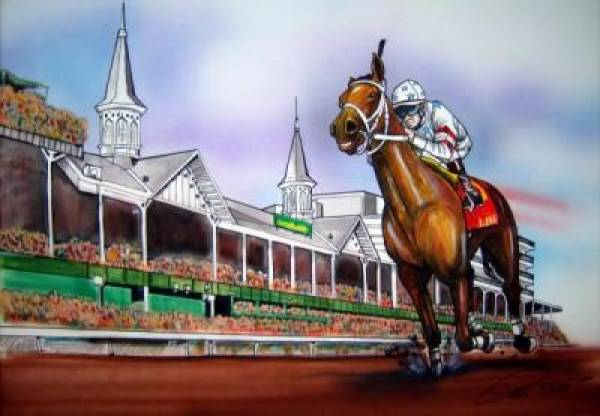Kentucky Supreme Court: iMEGA Oral Argument

The Supreme Court has set oral argument in the commonwealth of Kentucky v. IMEGA et al for 11 a.m. on Thursday October 22, 2009 in the Supreme Court courtroom. The order allots 15 minutes for each side.
The Interactive Media Entertainment & Gaming Association (iMEGA) prevented the commonwealth from seizing some 141 online gambling domain names earlier this year following an attempt by the commonwealth's governor, Steve Beshear.
Governor Beshear called the online gambling sector "leeches", suggested they were siphoning business away from Kentucky's own gambling establishments.
In a 2-to-1 majority opinion in January, the Kentucky appeals court ruled for the Interactive Media Entertainment and Gaming Association in its suit against Judge Thomas D. Wingate (No. 2008-CA-002000-OA), who had ruled in favor of the seizure, by blocking the seizure orders issued by the Franklin (KY) circuit court judge for the domain names, all related to Internet gambling (Commonwealth of Kentucky, Franklin Circuit Court, Division II, 08-CI-1409).
Judge Michelle M. Keller, in her majority opinion, found that Internet domain names for online gambling Web sites were not illegal "gambling devices" by Kentucky law, as had been claimed by attorneys representing the Commonwealth, in their attempt to seize control of the names from their owners. Judge Keller stated that while the Kentucky legislature could have chosen to include Internet domain names in its gambling devices law, it had not, therefore the Commonwealth could not rightfully proceed with its forfeiture action.
"[I]t stretches credulity to conclude that a series of numbers, or Internet address, can be said to constitute a "machine or any mechanical or other device...designed and manufactured primarily for use in connection with gambling," Judge Keller wrote. "We are thus convinced that the trial court clearly erred in concluding that the domain names can be construed to be gambling devices."
Judge Jeff S. Taylor, also writing for the majority, added that the Commonwealth could not seek a civil forfeiture based on a criminal statute when there had been no criminal proceeding. Since there had been no criminal proceeding or conviction against any of the Internet domain name owners, the Commonwealth could not take control of their property.
Judge Micheal Caperton, in his dissenting opinion, wrote that the Internet domain names were one part of a larger mechanism for gambling, which included computers and Internet service, and thus, in his opinion, met the definition of a "gambling device" under Kentucky law.
"This decision confirms why we went the way we did with suit ," said Jon L. Fleischaker, attorney for iMEGA and managing partner at Dinsmore & Shohl in Louisville, KY. "We knew when we brought this to the Court of Appeals, that we would get justice for iMEGA and the domain names in Kentucky."
Jagajeet Chiba, Gambling911.com













